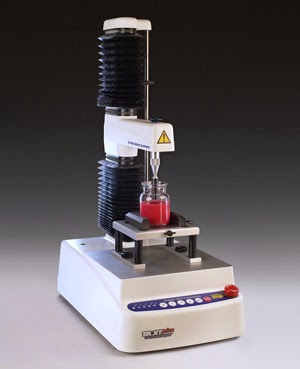Sometimes that replacement is another type of fat, or it might be another ingredient altogether (to reduce the overall fat content of the food). Food manufacturers have to test the altered food in comparison with its original form to ensure that all textural properties remain the same within acceptable limits.
Palm oil is an example of an ingredient that is frequently being replaced in food this decade. It is the oil extracted from the fleshy interior layer of the fruit of oil palms. According to “Trends in Global Palm Oil Sustainability Research.” in the Journal of Cleaner Production, it is the most produced vegetable oil in the world. In food manufacture, it is used as a flavour and moisture additive, an emulsifier and a lubricant. However, concerns over child labour, deforestation (and the associated decline in animal populations) and climate change have driven many manufacturers to reduce its inclusion in their products, as well as looking to reduce the high saturated fat content it gives to food. This is also an area of interest in scientific research, with efforts focussed on the change in physical properties and taste before and after palm oil’s replacement. Texture Analysis is central to the research and development of products subject to palm oil removal. Some supermarkets and manufacturers have recently had campaigns to entirely remove palm oil from their own brand products to meet with the growing public distaste for the ingredient, whether from an environmental or health perspective.
The replacement of trans fats and saturated fats due to health concerns has long been an area of interest in the food industry, and environmental concerns can be a further push for oils of tropical origin. Scientists from the University of Guelph have been researching methylcellulose structured oils as an alternative to palm oil shortening in sandwich cookie creams, putting their TA.XT2 Texture Analyser to use in Texture Profile Analysis of cream samples. It was found that varying the proportion of replacement oils had a large effect on the hardness, stickiness and gumminess of creams. Read more
Meanwhile, in Thailand, researchers from King Mongkut’s Institute of Technology Ladkrabang have been testing palm oil free cookies. The main objective of this study was to develop coconut oil based cookies fortified with tuna bone bio-calcium as a healthy food, rich in medium chain fatty acids and dietary calcium. After the ingredient swap, the quality and sensory properties of the samples were determined, including colour, diameter, thickness and hardness (which was tested using their TA.XTplus Texture Analyser). All tested properties of the cookies varied with levels of bio-calcium powder and coconut oil. It was found that 12% bio-calcium powder could be fortified into cookies using coconut oil as shortening replacer without any adverse effects on sensory properties. Read more
Over in Brazil, the focus is on reducing palm fats in hamburgers. A diet with high fat intake can lead to health problems, but fat is important to the texture of many foods. Scientists from the Federal University of Lavras have been researching hamburgers with chia seed added to act as a fat replacement. In this study, chia seeds were added in different quantities to chicken burgers to replace pork fat, and the resulting product investigated in terms of sensory characteristics. They used their TA.XTplus Texture Analyser to perform shear force measurements on samples. Although sensory taste scores and overall acceptance were reduced on products with higher chia addition, the degree of acceptance of the products was high. Results of this study highlighted the potential use of chia seed in the development of low fat and enriched dietary fibre burgers. Read more
There is a Texture Analysis test for virtually any physical property. Contact Stable Micro Systems today to learn more about our full range of solutions.
For more information on how to measure texture, please visit the Texture Analysis Properties section on our website.
 The TA.XTplus texture analyser is part of a family of texture analysis instruments and equipment from Stable Micro Systems. An extensive portfolio of specialist attachments is available to measure and analyse the textural properties of a huge range of food products. Our technical experts can also custom design instrument fixtures according to individual specifications.
The TA.XTplus texture analyser is part of a family of texture analysis instruments and equipment from Stable Micro Systems. An extensive portfolio of specialist attachments is available to measure and analyse the textural properties of a huge range of food products. Our technical experts can also custom design instrument fixtures according to individual specifications.No-one understands texture analysis like we do!
To discuss your specific test requirements click here...
 |  |



No comments:
Post a Comment